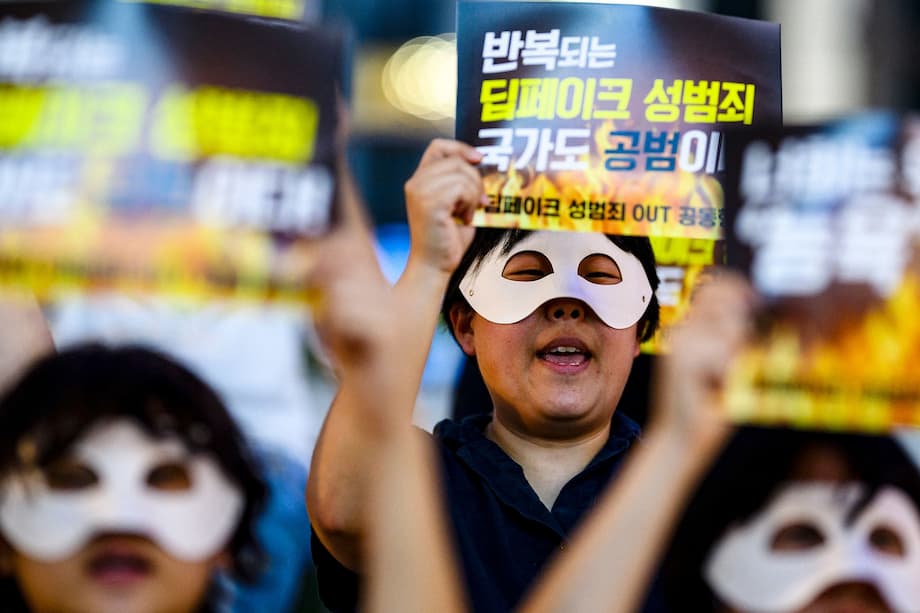Chinese Women Expose Telegram Voyeur Rooms: A Digital Privacy Crisis Unfolds
In recent months, China has been rocked by revelations of massive online voyeurism rings operating through the encrypted messaging app Telegram. These groups, some with hundreds of thousands of members, have secretly distributed private and explicit images and videos of Chinese women and girls—often without their knowledge or consent. The scandal has triggered public outrage, exposed deep flaws in privacy protections, and highlighted the challenges of combating digital sexual exploitation in an era of censorship and cross-border technology.
The story began with Ms. D, a woman in her 20s, who learned from a stranger that her ex-boyfriend had leaked intimate photos and videos of her to a Chinese-language Telegram channel called “Mask Park Treehole Forum.” The group, which boasted over 100,000 subscribers, was just one of many similar channels where users traded and commented on explicit images of women, including minors and even family members. The exposure of these channels has ignited a national conversation about privacy, gender-based abuse, and the limitations of both Chinese law and global internet governance.
How the Voyeur Rooms Operated
Telegram, a messaging app known for its encryption and privacy features, is officially blocked in China. However, users can access it via virtual private networks (VPNs), allowing them to join invite-only groups that operate beyond the reach of Chinese authorities. The “Mask Park Treehole Forum” and its offshoots functioned as hubs for sharing non-consensual images and videos, many of which were secretly recorded in public spaces such as restrooms, shopping malls, subways, and even medical facilities like ultrasound rooms.
According to investigative reports, the content was often captured using hidden cameras disguised as everyday objects—screws, power sockets, incense holders, water bottles, and even electric toothbrushes. These devices were openly sold in related Telegram groups, creating a shadow industry around voyeurism. Some footage was monetized, while other content was shared for personal gratification. In many cases, the victims were filmed by people they knew: ex-boyfriends, classmates, colleagues, or even relatives.
One victim described the shock of discovering her ex-boyfriend had not only leaked her private images but also exchanged them with strangers, along with her social media details. “Members were trading private information of their girlfriends, as well as those of strangers, a 10-year-old sister, a 20-year-old girlfriend, a 50-year-old mother-in-law,” she told reporters. The scale and brazenness of the operation left many women feeling vulnerable and powerless.
The Scale of the Scandal
The Mask Park Treehole Forum was not an isolated case. Investigations revealed at least a dozen active Chinese-language Telegram groups sharing explicit content, with some sub-forums reportedly amassing up to 900,000 members. Hashtags related to the scandal trended on Chinese social media platform Weibo, garnering hundreds of millions of views and sparking widespread fear that secret recording had become a part of daily life.
Many victims only learned of their exposure after being contacted by strangers or seeing their images circulate online. The groups’ use of self-destructing messages, screenshot blocks, and auto-deletion features made it nearly impossible to preserve evidence or trace the perpetrators. The anonymity provided by Telegram, combined with the app’s overseas servers and lack of real-name registration, further complicated efforts to hold offenders accountable.
Some users even bragged about assaulting or blackmailing women, while others distributed deepfake pornography—digitally manipulated images that superimpose a person’s face onto explicit material. The content was not limited to strangers; it often included girlfriends, wives, mothers, and daughters of group members, highlighting the pervasive nature of the abuse.
Public Outcry and the Limits of Activism
The exposure of the voyeur rooms triggered a wave of outrage across China. Feminist activists, lawyers, students, and ordinary citizens took to social media to demand action from authorities and to support victims. Ms. D’s post on Weibo, detailing her experience and naming the Telegram group, quickly went viral. The Mask Park Treehole Forum was shut down the next day, but backup groups and similar channels remained active, underscoring the resilience of these networks.
Despite the public outcry, Chinese authorities have remained largely silent. State media covered the story, with outlets like Guangming Daily calling the case “exceptionally egregious” and urging swift regulatory action. However, China’s powerful censorship apparatus soon intervened, muting campaigners, redirecting online searches away from the scandal, and removing posts referencing protests or calls for reform. Organizing public demonstrations is risky in China, where dissent is tightly controlled, and some investigators received anonymous threats for their efforts.
Many campaigners drew comparisons to South Korea’s infamous “Nth Room” case, in which operators of pay-to-view Telegram chatrooms blackmailed women into sharing sexually explicit images. That case sparked a national reckoning in South Korea, leading to major legal reforms and lengthy prison sentences for perpetrators. In China, however, activists are pessimistic about the prospects for similar change, citing political differences and a history of crackdowns on feminist and civil society movements.
Victims Speak Out—And Face Blame
Victims of the voyeur rooms have faced not only humiliation and distress but also a culture of victim-blaming. Chinese society remains deeply conservative on issues of sexuality and privacy, and women who come forward often encounter skepticism or even hostility. Secret filming rarely leads to criminal charges unless the consequences are deemed “serious,” and police are often reluctant to pursue cases without overwhelming evidence.
One victim, Ms. C, said police only opened a case after her story went viral online. “Victims continue to wait for recognition, with most remaining anonymous,” reported CNN. Lawyers and rights advocates argue that lenient punishments and lack of enforcement amount to implicit condoning of such behavior, leaving women with little recourse.
Legal and Regulatory Challenges
China has strict laws against producing or disseminating pornographic material for profit, with penalties as severe as life imprisonment. However, non-profit cases—such as sharing images for personal pleasure—carry much lighter sentences. Secret filming and photography are typically punished with administrative detention of up to 10 days or a fine of 500 yuan (about $70), unless the content is classified as “obscene” or the case is considered “serious.”
Legal experts point out that there are no specific regulations regarding the dissemination of intimate images of adult women in China. The high threshold for criminal prosecution, combined with the encrypted and overseas nature of platforms like Telegram, makes it extremely difficult to investigate and punish offenders. Cross-border cooperation is required to obtain user data or pursue legal action, a process that is often slow, complicated, and dependent on international relations.
Telegram, for its part, has stated that sharing non-consensual pornography is explicitly forbidden by its terms of service and that it removes millions of pieces of harmful content each day. The company says it will provide user data to authorities upon valid legal requests, but enforcement remains inconsistent and many groups simply reappear under new names or accounts.
The Shadow Industry of Hidden Cameras
One of the most disturbing aspects of the scandal is the commercialization of voyeurism. Telegram groups not only shared explicit content but also sold hidden surveillance devices disguised as household items. These tools, priced between 600 and 1,000 yuan ($80-$140), were used to record women in sensitive locations—restrooms, fitting rooms, medical facilities—without their knowledge. The sale and use of such devices have become a lucrative side industry, further fueling the spread of voyeuristic material.
In response, Chinese authorities have launched periodic crackdowns on illegal filming and the sale of hidden cameras. In February 2025, the State Council issued new regulations on video surveillance, imposing fines of up to 20,000 yuan ($2,790) for illegal installation of cameras and requiring business owners to inspect sensitive areas. However, enforcement remains patchy, and the penalties are seen as too lenient to deter determined offenders.
Global Implications and the Need for Reform
The Mask Park scandal is not just a Chinese issue—it reflects a global crisis of privacy, digital security, and gender-based violence. The ease with which intimate images can be captured, shared, and monetized online has outpaced the ability of laws and institutions to protect victims. Encrypted platforms like Telegram offer valuable privacy for legitimate users but also provide cover for abusers and criminals.
Activists and legal experts are calling for systemic changes, including:
- Stronger legislation to criminalize all forms of non-consensual image sharing and covert filming, regardless of the device used or profit motive
- Clearer regulations and enforcement mechanisms for online platforms, both domestic and international
- Improved cross-border cooperation on digital crimes
- Greater transparency and accountability from tech companies
- Public education campaigns to combat victim-blaming and support survivors
As one victim urged in an interview, “Don’t be afraid. Don’t blame yourself. If your private images have been spread or you’ve been a victim of any form of sexual abuse, I hope you try to speak out and seek justice. As victims, we have nothing to be ashamed of. The ones who should be afraid are the criminals—the cockroaches hiding behind their ‘masks,’ doing these filthy things.”
In Summary
- Chinese-language Telegram groups have secretly distributed explicit images and videos of women and girls, sparking national outrage and debate over privacy and legal protections.
- The “Mask Park Treehole Forum” and similar channels operated through VPNs, using hidden cameras and encrypted messaging to evade detection and accountability.
- Victims often discovered their exposure by chance and faced significant barriers to justice, including censorship, victim-blaming, and weak legal protections.
- Chinese authorities have cracked down on some groups and surveillance device sales, but enforcement is inconsistent and penalties are light.
- Activists and legal experts are calling for stronger laws, better enforcement, and international cooperation to combat digital sexual exploitation and protect women’s rights online.












